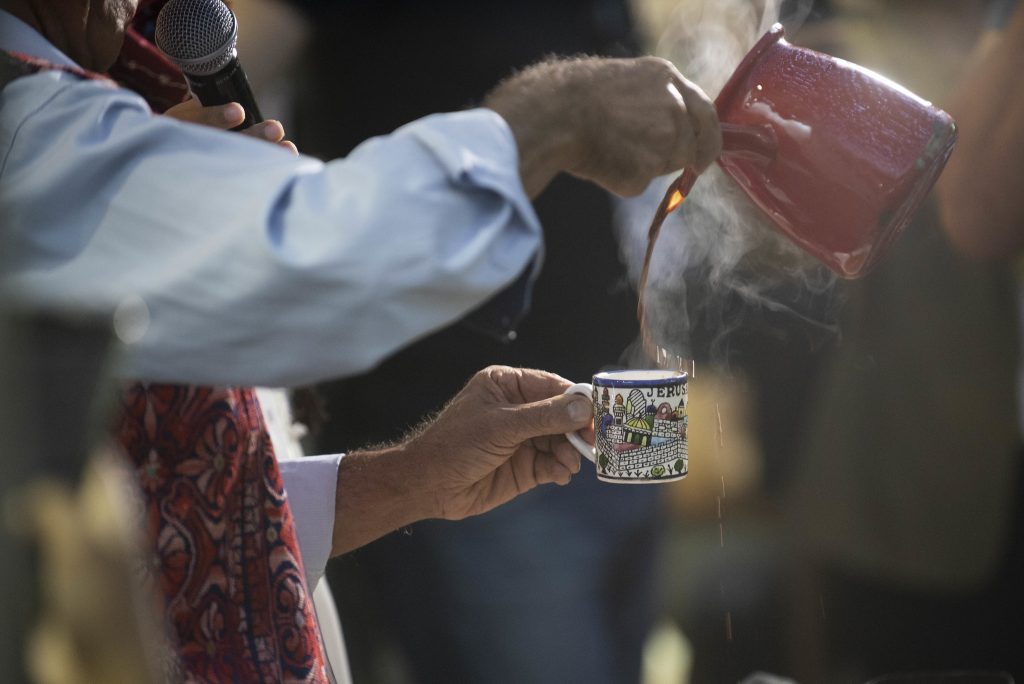Belo Horizonte – An Arab coffee cupping during the International Coffee Week has drawn dozens of people this Thursday (21). This is Brazil’s largest special coffee event and took place in Minas Gerais’ capital city. The cupping (pictured above) was held by Ali El Khatib, superintendent at Instituto Brasil Árabe de Inovação e Eventos (Brazil Arab Institute of Innovation and Events).
For El Khatib, the beverage fosters a connection between Brazilian history and Arab culture and tradition. “It’s an appreciation of an ancient culture. And an Arab culture that is fortified by women, which is something that is not often mentioned. It’s a redemption of the Arab origins,” he pointed out.
The Arab coffee preparation is one of the only ones where the ground coffee is heated together with the water and doesn’t go through any filter. In this method, a container with sand is heated and an instrument with the mix is put inside it.

To prepare the drink for the fairgoers, El Khatib brought Brazilian beans roasted in different Arab countries. “Syria, Palestine, Tunisia and Lebanon. Each country has its own kind of grinding and roasting, because each one has its own preferred way to drink it,” he explained.
El Khatib has worked for over three decades to promote the Arab culture in Brazil. He believes that events such as this bring a diverse audience and help spread the knowledge about the community. “We’ve worked with the Arab Brazilian Chamber of Commerce since 1982. At the beginning, it was not about coffee but, during the events, the 15-minute coffee break became a half hour. This happened over time, so we realized the potential of the coffee and now we have health projects such as the Coffee Run in Campinas,” he pointed out.
In Belo Horizonte, the superintend addressed the history of coffee, which has important passages through the Arab world, such as its diffusion through the Port of Mocha, Yemen. El Khatib invited the imam El Khal, a Moroccan-descendant Brazilian, to help in the cupping.
The event was attended by consumers and coffee growers from Brazil and countries like Colombia. “Coffee is an identity of the Brazilian people and is part of the Arab culture too. This strengthens the bond between both peoples,” finished El Khatib.
Translated by Guilherme Miranda




